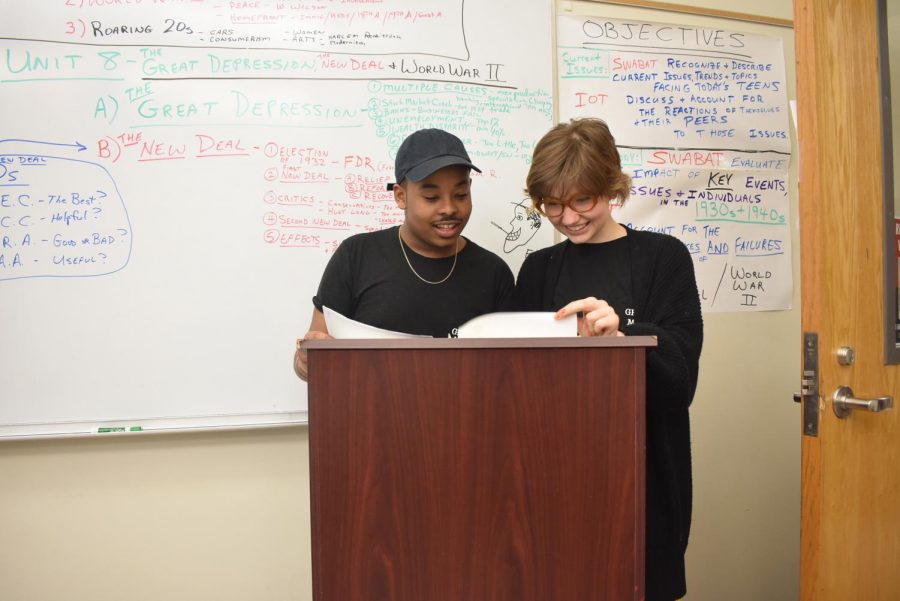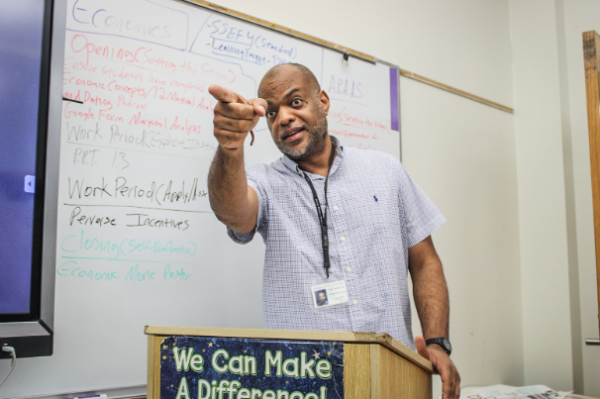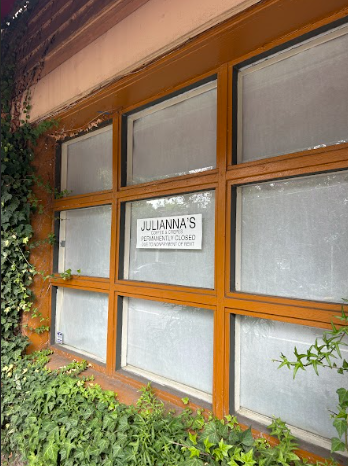Moot Court provides students with important life skills
The challenge of thinking through complex legal cases fascinates senior Mehki Etienne. In his freshman year, Grady ended its law pathway. Social studies teacher James Sullivan recognized his interest.
“I have a great passion for law,” Etienne said. “Mr. Sullivan recognized it and strongly recommended that I join Moot Court.”
Sullivan is a retired attorney who wanted to bring his legal expertise to the classroom.
“I always wanted to teach and so I have a lot of experience in the legal field,” Sullivan said. “I thought that I could bring that to help out with Moot Court which is a legal related extracurricular, kind of like Mock Trial.”
According to Sullivan, moot court involves presenting mock appellate arguments before a judging panel. Issues presented tend to involve “hot topics” that surround the rights of students and current news.
“It’s basically appellate court,” moot court member, sophomore Sophie Markovic said. “If someone does not like the outcome of their case, they try to bring the case back to court.”
Moot court is not like the stereotypical courtroom trials on TV, with lawyers questioning witnesses and a jury deliberating in a backroom.
“You’re arguing in front of a court like the Supreme Court, and you’re not interviewing witnesses or getting evidence,” Sullivan said. “What you’re doing is you’re talking about the law and what these facts say and what the law should decide. You’re telling your position to the judge, and the judge is asking you questions back.”
Differentiating moot court from mock trial and debate is important to Sullivan.
“It’s almost like moot court is the combination of some of the things from debate and some of the things from mock trial,” Sullivan said.
While critical thinking and public speaking are both important aspects of moot court and mock trial, the level in which the court case is presented is the differentiating factor. Mock trial presents cases in front of a jury while moot court presents in front of a panel of judges.
“That’s also the part that is like debate,” Sullivan said. “That extemporaneous thinking to get an issue and suddenly have to think about what to say about it.”
Being able to think on your feet and speaking in front of a crowd are a few of the many benefits of moot court. Etienne finds this skill useful for inside the courtroom and the classroom.
“When I conduct classroom presentations, I’m more confident than ever,” Etienne said. “Also, in class when I’m asked a question, I’m able to answer the question immediately as if it was expected.”
In addition to these benefits, students also learn how to structure a winning argument.
“You get to not only argue, but you get to defend a position,” Sullivan said. “It helps you become really good at polishing your skills and sticking to an argument.”
Along with standing by your opinions, moot court also helps students to broaden their horizons about the world around them.
“One case we have now is about Georgia’s voting scandal from 2018,” Markovic said.
Markovic and junior Keontae Gui are working on a case about voter’s purge.
“People were not getting their votes cast\; they weren’t being represented,” Gui said.
While the courts and Grady moot court students are still litigating the last gubernatorial election, 2020 holds a new year of potential controversies and cases.
“The 2020 Presidential Election is occurring soon,” Etienne said. “I’m pretty sure this topic will once again become the talk of the town.”
Along with the voter’s purge, moot court will also tackle the admission of an LGBTQ+ student to a private, Christian university. They are prepping this case for their next tournament.
Tournaments help students build real-life skills they can apply in many settings.
“If I could tell any student anything about moot court, it would be that you don’t have to want to be a lawyer to participate in moot court,” Sullivan said. “It’s just fun, in that you get to not only argue, but you get to defend a position.”






